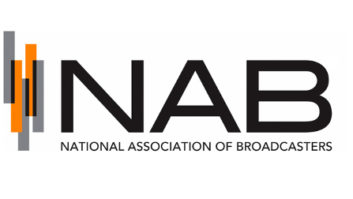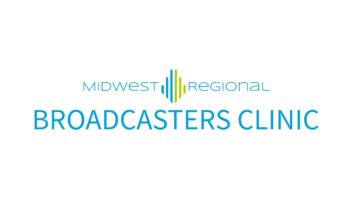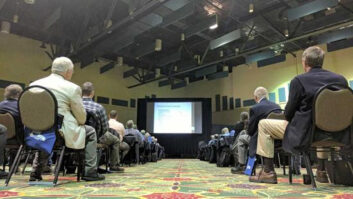The FCC’s proposal to require that broadcasters file reports in the Disaster Information Reporting System (DIRS) during emergencies isn’t getting much love.
Earlier this year, the commission voted to mandate expanded participation in DIRS for wireless, cable and internet companies, and is still considering adopting a similar requirement for radio and television broadcasters.
The FCC says it believes too many stations — particularly small and medium-sized stations — choose not to voluntarily file DIRS reports, leaving a gap in the commission’s awareness of broadcasters’ status during a disaster which could hinder emergency response efforts. The FCC says it typically only hears from 20% to 35% of stations.
NAB says, while the proposal is well-intentioned, it would also hinder broadcasters’ ability to serve the public during an emergency. The group says broadcaster’s resources can be better placed.
“Mandatory reporting during emergencies can only serve to distract broadcasters from this mission with no discernable public benefit,” NAB said in comments filed last week. “It would be one thing if broadcasters relied heavily on the FCC during times of emergency, but that is simply not the case,”
Distinguishing broadcasters as separate from wireless providers is appropriate, NAB says, because unlike some wireless communications providers, radio and television stations cannot simply pass through to subscribers the costs of additional regulatory requirements.
“Any funds required to implement mandatory DIRS reporting will reduce broadcasters’ ability to produce local news and other highly valued content, including their ability to inform the public during times of crisis,” NAB told the FCC in its comments.
[Related: “FCC Seeks to Enhance DIRS Reporting“]
Broadcasters are also different from other communications providers because they must gather and report timely news and information about a disaster as a situation unfolds.
“More paperwork obligations as proposed in the Second Further Notice will distract station staff from this core responsibility and possibly risk harm to lives or property by disrupting a station’s coverage of a disaster,” said NAB.
Further, the advocacy group says some broadcasters choose not to file DIRS reports “because doing so rarely, if ever, leads to any government actions that help a station maintain or restore service.”
“NAB is unaware of any instances when a DIRS filing led to government assistance that helped a radio or television station obtain fuel, repair a transmitter or studio, or otherwise maintain or restore service,” NAB said.
Instead of adding more paperwork obligations, the NAB says the FCC should focus on steps that would actually help stations — such as assisting broadcasters in gaining access to fuel and their facilities during a disaster.
If the commission still feels compelled to mandate DIRS reporting, the NAB says it must, at the very least, simplify the system. “Reporting that a station is unaffected by a disaster should be a ‘one-click’ process, and if possible, DIRS should be made mobile-friendly so that broadcasters can easily update their status from a smartphone.”
National Public Radio (NPR) also offers little endorsement of mandatory DIRS reporting for broadcasters. In fact, it says during emergencies broadcasters and local officials are already collaborating and can determine if a broadcaster is operating without checking a government database.
In its own comments, NPR accuses the FCC of being “vague” about how the commission and local emergency responders might use information collected from broadcasters. “The FCC should wait to impose any new reporting requirements on broadcasters until it can clearly articulate how the data collection will be used and how it will benefit the public interest,” said NPR.
Meanwhile, Cumulus Media says it is wary of any additional FCC mandates, especially those that come during a time of emergency when broadcasters’ resources are typically pinched.
“To impose enforcement consequences upon broadcasters who fail to fill out the DIRS form within 24 hours when their livelihood is at stake is unconscionable,” Cumulus commented. “To be told that they will be held accountable for placing their safety and livelihood over an uncertain need for the public to be informed is government overreach at its worst.”
As part of the same proceeding, the FCC is also considering forcing stations to begin reporting outages to the FCC’s Network Outage Reporting System (NORS). The commission believes mandatory NORS filings would help it see outages across certain geographic areas, but NAB says “forcing broadcasters to participate in NORS would be unnecessary and duplicative.”
Comments on the proposals (PS Docket No. 21-346) can be read online. Reply comments are due on May 28, 2024.






